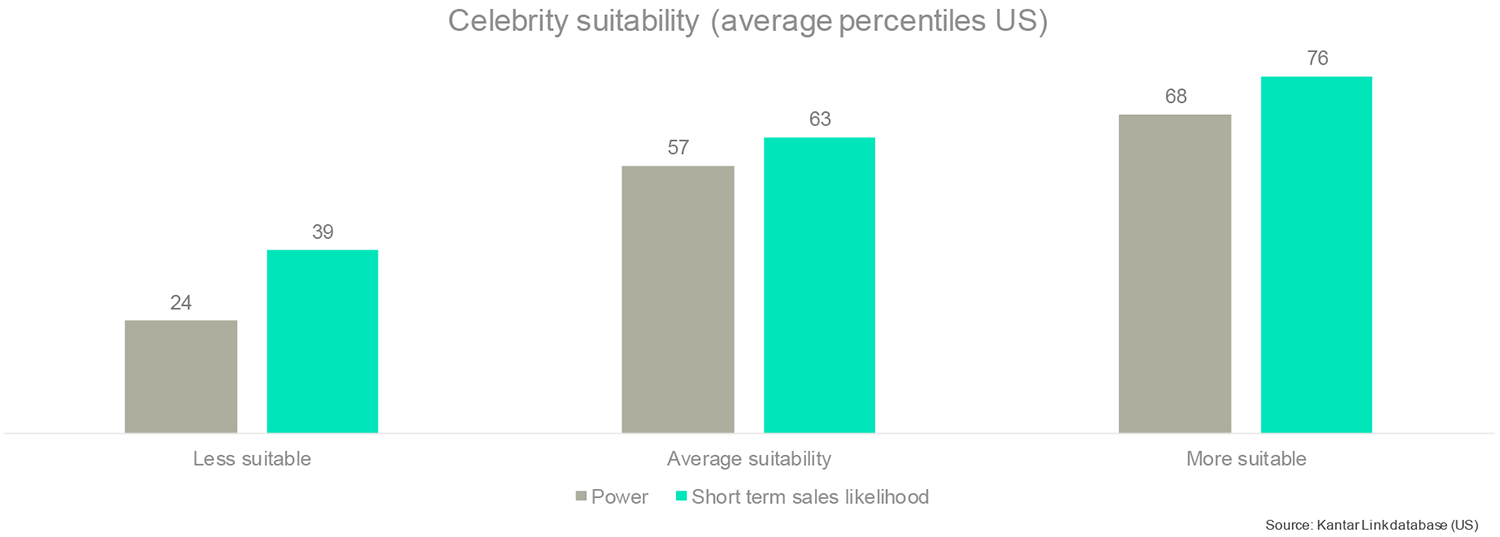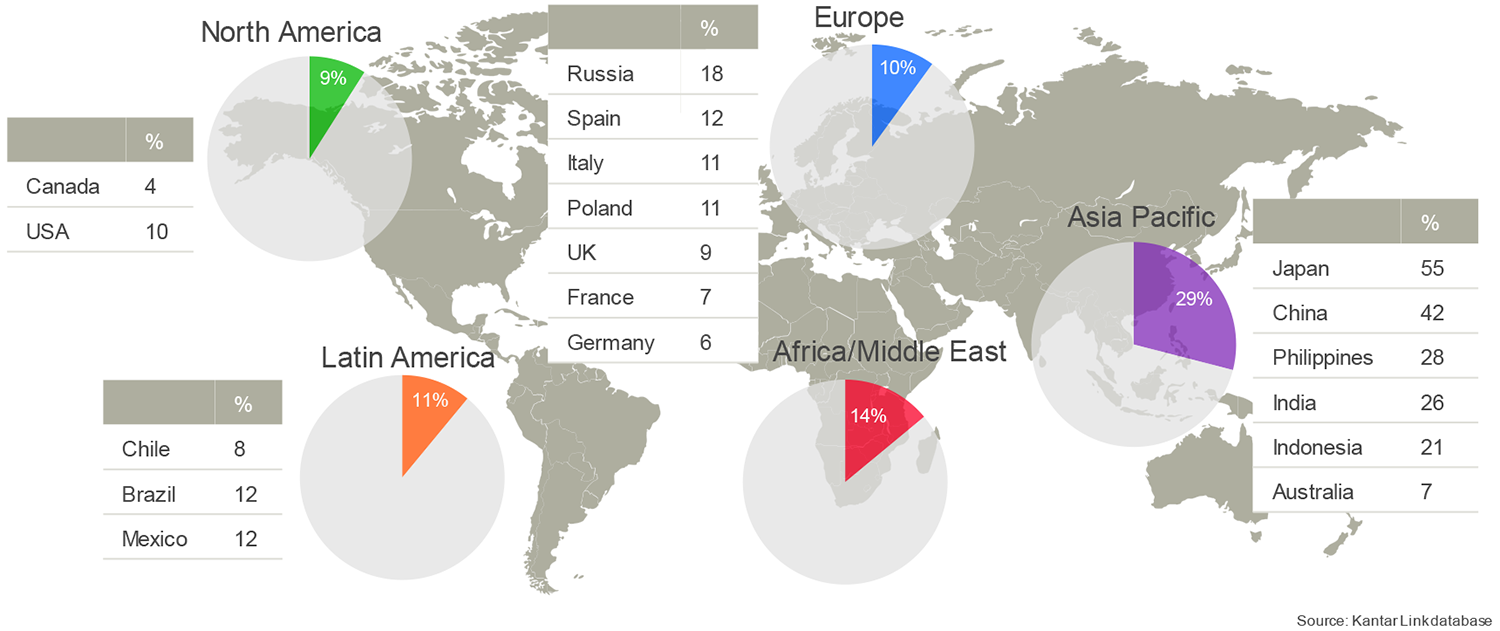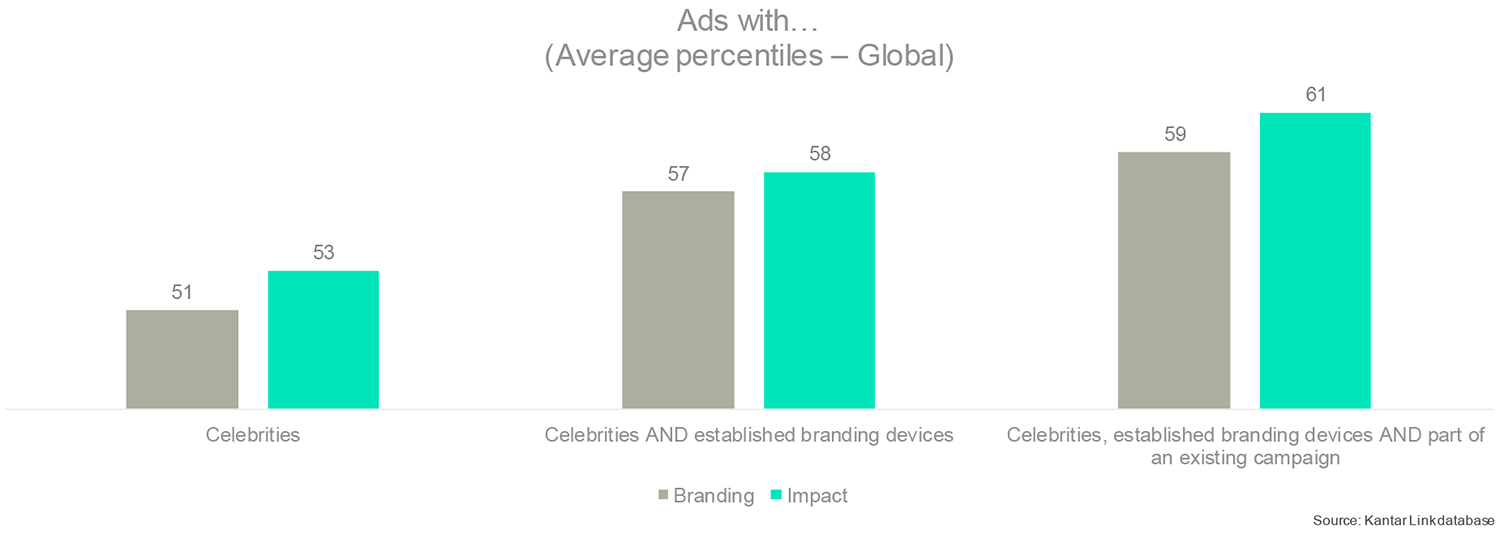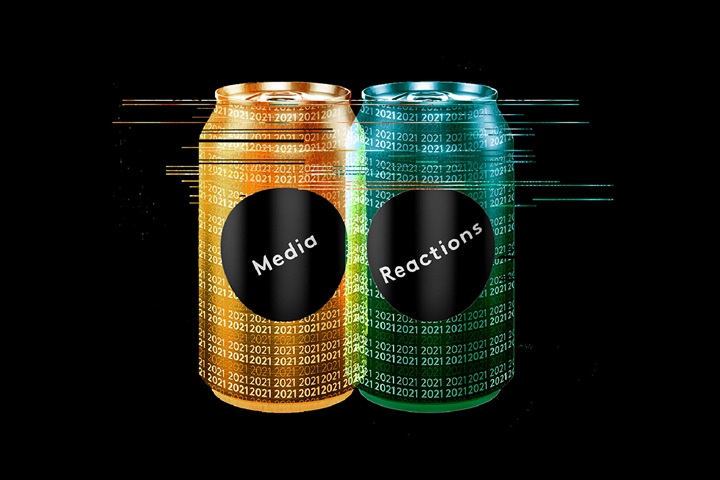Use of celebrities is one of the ingredients, or creative devices, used by winning brands in Kantar’s 2021 Creative Effectiveness Awards. Our Link ad testing database shows that the presence of celebrities alone isn’t enough to make you a winner, or even be successful. So much depends on how you use them. Do that well, and a celebrity can deliver for your brand, justifying the investment in them. But there are times when the value of celebrities isn’t fully exploited and so they neither get the attention that they could, nor imbue the brand with the benefit of their association.
The right celebrity, used in the right way can be a truly powerful brand asset, allowing brands to be relevant and timely.
The better the celebrity fit the bigger the impact on brand equity and sales

Celebrities are almost three times more likely to feature in the ads we’ve tested in Asia. With Japan featuring celebrities in 55% of ads compared to a global average of 16%, it seems fitting that the Tokyo 2020 Olympic Games is producing our new, global sporting celebrities who will be snapped up to sponsor brands and events, and are likely to appear in advertising across the globe in coming years.
The proportion of ads tested which include celebrities

What is a celebrity?
The definition of ‘celebrity’ does differ by country. It is a much broader term in Japan, with talent agencies hiring on looks, gimmicks, past careers and even people who are related to celebrities, to find ‘tarento’ (talent) to enhance low-budget variety shows and appear in advertising. China also has far higher usage of celebrities than other regions, (42%). This may, however, be about to change. Recently a state-owned newspaper talked of a crackdown on celebrity online culture, criticising social media platforms that make stars out of ‘unworthy individuals’ and the irrational support some fans show for celebrities based on their popularity on online platforms.
Traditionally, celebrities came from the movies, television, music and sporting worlds and, once established, were usually here to stay. However, fame is now something that can suddenly appear, and as easily disappear overnight. This makes the selection of the right celebrity to endorse your brand even more crucial than ever. Being behind the curve can be a costly mistake if your celebrity disappears from all but your advertising.
And what about influencers?
The celebrity culture has expanded with influencer marketing, an industry that continues to evolve exponentially. This is of course different because the influencer owns the content creation of the ad.
Media Reactions explores the evolution of the media landscape around the world, including how consumers respond to ads in different environments. The 2020 report highlighted influencers as the top digital channel for ad reciprocity. The 2021 study, launching on 1 September, will reveal how consumer opinions have evolved in the context of other digital channels, and whether marketers are developing greater trust with influencer content.
What makes the best celebrity fit?
There are many things to think about before selecting your celebrity. If recognition is crucial, ensure your celebrity is well known amongst your target audience, and that they are emotionally congruent and still culturally relevant. And if they need to be liked, check that they still are.
Your celebrity should also convey the values you want to associate your brand with. Are they likely to behave, or more importantly, not misbehave? And be cautious of promiscuous celebrities who are already associated with too many other brands. This could lead to confusion and conflicting loyalties.
Make sure you have the right celebrity
Before signing costly contracts it is worth considering early-stage ad pre-testing to check your chosen celebrity is right for your brand. When testing early-stage ads, you can use drawings, characterisations and photoshop to incorporate a celebrity into unfinished ads or storyboards. If celebrity recognition is imperative to the ad’s success, you could use a photograph and written explanation, with further optional questions to check not only recognition, but also appropriateness, likeability or possible irritability.
We also know that the longevity of a celebrity partnership can be key to building and establishing a successful win-win relationship, whereby whenever a consumer sees one, they will think of the other. A great example of this is Gary Lineker’s successful partnership with Walkers Crisps in the UK, which spans over 26 years.
And used in combination with other branding devices, celebrities can boost campaigns by making the connection across ads immediately obvious, becoming a branding device in their own right.
The power of celebrities across integrated campaigns and with other devices

What’s changed?
Our Link data shows that the pattern of celebrity usage has stayed consistent over the last ten years for TV advertising, but celebrity use in sponsorship and celebrity and influencer touchpoints has grown. Categories such as toiletries, clothing and drinks are currently making the most use of celebrities, and markets with higher celebrity usage, are favouring more local rather than international celebrities to convey their messages and endorse their brands.
And what does the future hold?
With the broadening definition of the word celebrity, we will see inspired and more unusual brand partnerships, like the recent two-way partnership where Billie Eilish launches her new music tracks within ads for the car maker Dodge. We are likely to see further franchise partnerships such as David Beckham fragrances, or even celebrities buying stakes in the brand they endorse such as Ryan Reynolds and Aviation Gin.
How can Kantar help?
By testing your unfinished ads we can check the appropriateness, recognition and brand fit of your celebrity with guidance on how to incorporate them into an unfinished ad before testing. Incorporating a brand positioning module provides diagnosis of your brand on an emotional level to check that consumers are seeing your brand in the way you want them to, helping to clarify your brands positioning before choosing the best celebrity fit.


